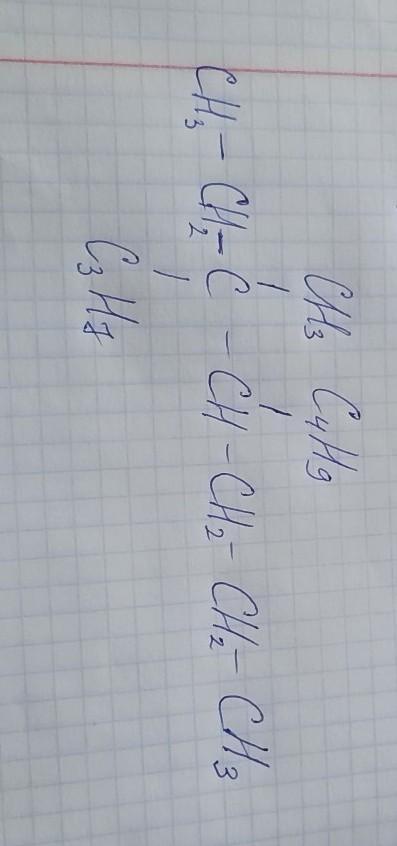Предмет: Химия,
автор: kurbalievagulli
составить формулу: 3 метил - 3 пропил - 4 бутил - гептан
срочнооооо
Ответы
Автор ответа:
1
Ответ:
(Там где С: сверху СН3, снизу С3Н7)
СН3-СН2-С-СН-СН2-СН2-СН3
(Там где СН - С4Н9)
Приложения:

Похожие вопросы
Предмет: Қазақ тiлi,
автор: grand2005
Предмет: Русский язык,
автор: kseniakr20021
Предмет: Русский язык,
автор: aglyamzyanova20
Предмет: Математика,
автор: юська515
Предмет: Физика,
автор: zhunussovaass